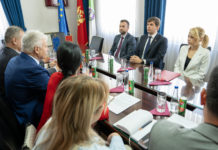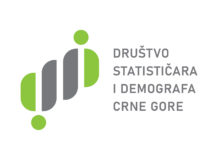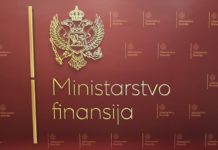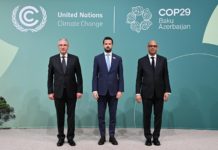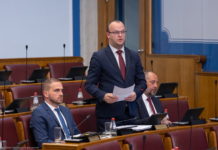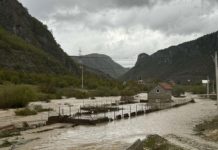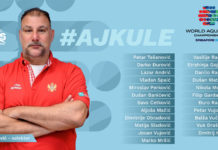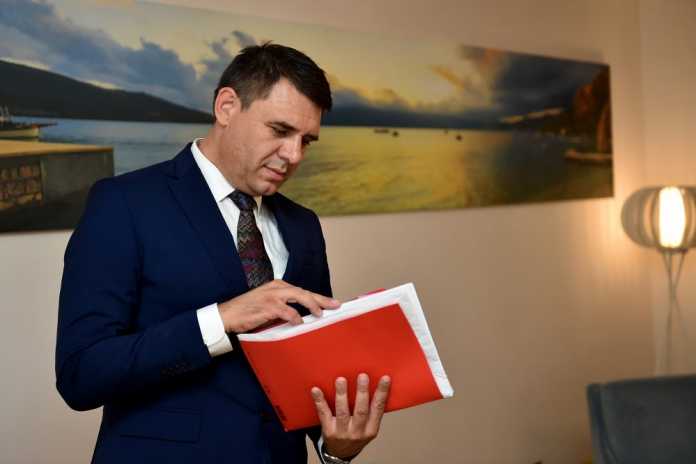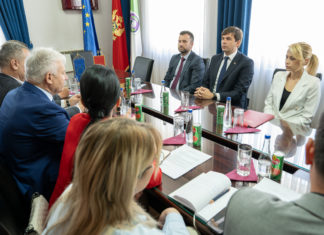Podgorica, (MINA) – Montenegro remains fully committed to meeting the obligations from
the EU accession process and it can be pleased with the progress made so far in meeting
the political criteria for EU membership, Chief Negotiator Aleksandar Drljevic has stated.
At the same time, representatives of the Center for Civic Education (CGO) argue that
Montenegro has no reason to be satisfied with the fact that after seven years of EU
accession talks it remains a candidate country with the most chapters opened, while
achieving limited progress in 24 chapters, no progress in one chapter and good progress in
only seven chapters, as stated in the European Commission’s latest annual report.
“We are making progress year after year, both in terms of meeting the political and economic criteria for EU membership, and in terms of our capability to assume the
responsibilities arising from EU membership in 33 negotiation chapters,” Drljevic told Mina.
He remarked that progress is evident, in the sense of bringing the Montenegrin legislation in
line with the EU acquis, improving the institutional framework, strengthening administrative
capacities and building a track record of measurable results in all areas.
The Chief Negotiator argues that Montenegro has made significant progress in all areas,
focusing in particular on the rule of law, adding that he expects that the European
Commission will recognize results in this area, above all in the area of the fight against
corruption and organized crime.
Drljevic recalled the findings from the European Commission’s latest Non-paper on chapters
23 and 24, which recognize continued progress in the legislative reform and building of
institutions, as well as initial track record in the fight against high-level corruption and
organized crime, money laundering and temporary confiscation of assets.
He noted that, based on those results, Montenegro is a step away from meeting the interim
benchmarks for chapters 23 and 24 and getting the closing benchmarks for those chapters,
making the final stage in the EU accession talks.
“We expect that in this year’s report on Montenegro, the European Commission will
recognize the results made in the fight against corruption and organized crime, money
laundering, financial investigation, confiscation of assets, prosecuting of attacks on
journalists and other important areas, giving a new boost to the EU accession talks and the
implementation of the remaining commitments from our European agenda,” Drljevic said.
CGO Executive Director Daliborka Uljarevic, on the other hand, remarked that the
government predominantly focuses on remaining in power, which she described as
legitimate.
According to her, the government is leading the EU accession process, but as long as the
process is not inclusive and is not marked by the opening up of the government, with a view
to seeking consensus on the key priorities and working together with all those capable of
assisting the process, there can be no real conditions for meeting the political criteria.
Therefore, Uljarevic argues, in the seventh year of negotiations Montenegro is still
progressing ‘one step forward, two steps back’.
One the other hand, she noted the only correct approach for Montenegro would be to work
on substantial reforms, now more than ever before, to open up the system for pluralism of
opinions.
“That is the only approach, coupled with achieving measurable results until the formation of
the new Commission, that will give us a chance to win the required political, technical and
financial support for democratization and Europeanization. Because the EU needs a success
story in the region, but under the current circumstances it will no longer be satisfied with
the past simulation of reforms by the Montenegrin authorities,” she added.
The article is produced under the CDT project entitled “Western Balkans in the EU accession
process: Meeting the political criteria”, which is funded by the Balkan Fund for Democracy
and the Norwegian Embassy.

